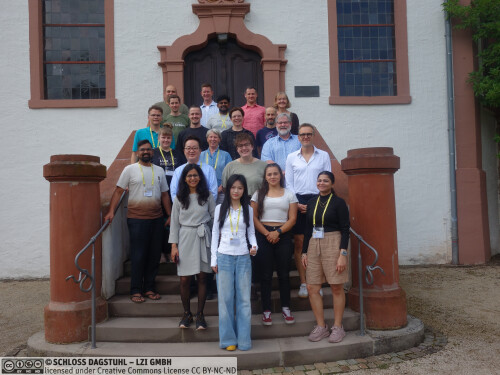Dagstuhl Seminar 25302
NatureHCI: Towards Designing Computer-Enriched Nature Experiences
( Jul 20 – Jul 25, 2025 )
Permalink
Organizers
- Masahiko Inami (University of Tokyo, JP)
- Michael Jones (Brigham Young University - Provo, US)
- Zhuying Li (Southeast University - Nanjing, CN)
- Florian 'Floyd' Mueller (Monash University - Clayton, AU)
Contact
- Marsha Kleinbauer (for scientific matters)
- Christina Schwarz (for administrative matters)
Shared Documents
- Dagstuhl Materials Page (Use personal credentials as created in DOOR to log in)
Connecting with nature is an essential human need increasingly challenged by urbanization. In response, the field of Human-Computer Interaction (HCI) is exploring how to design digital technologies that facilitate and enhance our interactions with the natural environment. These technologies offer instrumental benefits by guiding individuals to natural areas, using enhanced navigational aids and disseminating information about these environments through visualization techniques. Additionally, machine learning algorithms can identify patterns in nature-related activities, aiding in planning. On an experiential level, technologies such as virtual reality can simulate natural settings for those with limited access, wearable technologies can enhance sensory experiences, and drones can provide innovative forms of visual interactions within natural landscapes. In response, such "NatureHCI" systems can support novel engagements based on different cultural and human perspectives. This "NatureHCI" Dagstuhl Seminar will explore these opportunities and address challenges such as the potential environmental impacts of technology. By aiming to bring together experts and stakeholders from academia and industry, the seminar seeks to foster a comprehensive discussion on how interactive technologies can be designed responsibly to improve our experience of nature, thereby strengthening our connection with nature, which benefits health and wellbeing.
 Masahiko Inami, Michael Jones, Zhuying Li, and Florian 'Floyd' Mueller
Masahiko Inami, Michael Jones, Zhuying Li, and Florian 'Floyd' Mueller
Please log in to DOOR to see more details.
- Ahmad Alsaleem (University of Utah - Salt Lake City, US) [dblp]
- Natalie Andrus (Virginia Polytechnic Institute - Blacksburg, US) [dblp]
- Bill Borrie (Deakin University - Melbourne, AU)
- Margot Brereton (Queensland University of Technology - Brisbane, AU) [dblp]
- Florian Daiber (DFKI - Saarbrücken, DE) [dblp]
- Don Samitha Elvitigala (Monash University - Clayton, AU) [dblp]
- Masahiko Inami (University of Tokyo, JP) [dblp]
- Carey Jewitt (University College London, GB)
- Michael Jones (Brigham Young University - Provo, US) [dblp]
- Tuomas Kari (National Resources Institute Finland, FI) [dblp]
- Hong Luo (Monash University - Clayton, AU)
- Andrii Matviienko (KTH Royal Institute of Technology - Stockholm, SE) [dblp]
- Scott McCrickard (Virginia Tech - Blacksburg, US) [dblp]
- Maria Fernanda Montoya Vega (Monash University - Clayton, AU) [dblp]
- Florian 'Floyd' Mueller (Monash University - Clayton, AU) [dblp]
- Siiri Paananen (University of Lapland - Rovaniemi, FI) [dblp]
- Nandini Pasumarthy (Monash University - Clayton, AU)
- Rakesh Patibanda (Monash University - Clayton, AU) [dblp]
- Ambika Shahu (IT:U Interdisciplinary Transformation University, AT) [dblp]
- Sarah Webber (The University of Melbourne, AU) [dblp]
- Jason Wiese (University of Utah - Salt Lake City, US) [dblp]
Classification
- Human-Computer Interaction
Keywords
- Nature
- Technology
- Wellbeing
- Sustainability



 Creative Commons BY 4.0
Creative Commons BY 4.0
